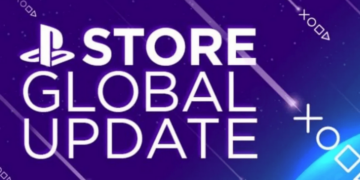Nintendo finds itself in a prime spot to unveil its latest console, the follow-up to the successful Switch, possibly within the next few months. With the fiscal year drawing to a close in March 2025 and fan anticipation reaching a fever pitch, a well-timed announcement could significantly boost the company’s momentum. Deciding on the ideal location and timing for this reveal is crucial, and introducing the Switch 2 early could give Nintendo a major leg-up against the competition as they move into a new era.
A fascinating opportunity for this big reveal could be at The Game Awards, which will mark its tenth anniversary this December. This event is one of the top highlights in the gaming calendar, attracting attention from around the globe, making it a fitting platform for Nintendo to unveil a teaser or a glimpse of their next console. By leveraging the prestige and wide reach of the awards event, Nintendo could stir up excitement not just for the hardware, but also for the new games coming down the pipeline.
The Game Awards could be a clever move for Nintendo as they have several games in the mix this year. With titles like Balatro vying for Game of the Year and Super Mario Party Jamboree in contention for Best Family Game, Nintendo is already set to capture significant interest. Adding a console debut to its presence there could eclipse its rivals and ensure that Nintendo remains a headline act amongst gamers during the show.
Announcing the new console at The Game Awards could also be a smart marketing maneuver. Instead of waiting until early next year as the fiscal deadline looms, unveiling a teaser in December would allow for a long lead-up filled with additional announcements through Nintendo Directs. This phased reveal strategy could balance initial buzz with more detailed information about the console’s features, specs, and games lineup throughout 2024.
Unveiling the Switch successor early presents Nintendo with the chance to shine a spotlight on both its current and forthcoming software catalog. For example, the Xenoblade Chronicles X Definitive Edition, expected next year, could be elevated as a launch window title for the new system. This buzz around new hardware could also turn the spotlight onto games that may otherwise struggle for attention in a bustling market.
Moreover, combining a console announcement with information about backward compatibility or enhancements for existing titles could boost consumer confidence in upgrading. This tactic assures current Switch owners that their investments won’t be left in the dust, while hinting at exciting developments ahead. Titles like Neva, nominated for Best Art Direction and Games for Impact, highlight Nintendo’s prowess in nurturing groundbreaking indie projects alongside its classic franchises—a balance they should emphasize while gearing up for the next system.
On the flip side, holding back on the announcement could be risky in today’s competitive gaming landscape. Sony and Microsoft are unlikely to slow down, with mid-generation upgrades or novel features on the horizon, and competitors like Valve are making strides in portable gaming. Launching an announcement sooner allows Nintendo to steer the conversation and assure both fans and stakeholders that they are ready to deliver top-notch hardware and experiences.
Additionally, announcing early gives Nintendo a chance to tackle potential supply chain issues head-on, preventing the shortages that have plagued console launches during the pandemic. By revealing their plans ahead of time, Nintendo can project readiness and competence, reducing any potential consumer discontent.
Ultimately, the successor to the Switch represents not just a new phase for Nintendo but a golden opportunity to redefine its standing in the gaming industry. Announcing it sooner rather than later could help cement their role as industry frontrunners, showcasing their innovative hardware and the creativity of their software offerings. Whether through a teaser or a detailed roadmap, an early reveal could lay the groundwork for a groundbreaking generation.









![[Giveaway] Free IREM Collection Volume 3 for PlayStation (NA) [Giveaway] Free IREM Collection Volume 3 for PlayStation (NA)](https://www.pressstartreport.com/wp-content/uploads/2025/06/Volume-3-of-the-IREM-Collection-Releases-Next-Week-360x180.jpg)


![[Free Game] Ruffy and the Riverside Giveaway for PlayStation 5 (North America) [Free Game] Ruffy and the Riverside Giveaway for PlayStation 5 (North America)](https://www.pressstartreport.com/wp-content/uploads/2025/06/Free-Game-Ruffy-and-the-Riverside-Giveaway-for-PlayStation-5-360x180.jpg)

































